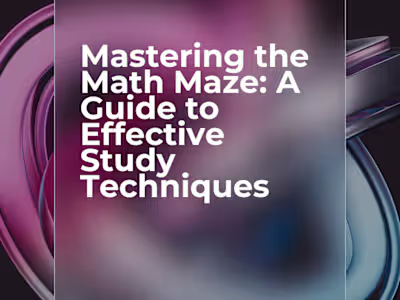APPLICATIONS OF MATHS IN EVERYDAY LIFE
Mathematics is often viewed as a subject confined to textbooks and classrooms, but its applications extend far beyond academic settings. In fact, mathematics plays a crucial role in various aspects of our daily lives, from managing personal finances to making health-conscious decisions and even navigating through unfamiliar territories. This essay explores the practical applications of mathematics in everyday life, shedding light on how mathematical concepts and principles contribute to our understanding and decision-making processes in personal finance, health and nutrition, as well as travel and navigation.
One of the most prevalent applications of mathematics in everyday life is in the realm of personal finance. Budgeting and financial planning, for instance, heavily rely on mathematical calculations to ensure individuals allocate their resources efficiently. By using basic arithmetic operations, individuals can track their income, expenses, and savings, enabling them to make informed decisions about their financial goals and priorities. Moreover, mathematics is essential for calculating interest rates on loans, credit cards, and mortgages, allowing individuals to understand the implications of borrowing money and making timely repayments. Additionally, understanding investments and savings strategies involves utilizing mathematical concepts such as compound interest and risk assessment to optimize returns and build long-term wealth.
Mathematics also plays a significant role in promoting health and nutrition awareness among individuals. When it comes to maintaining a healthy lifestyle, mathematics is used to calculate calorie intake and expenditure, helping individuals balance their energy consumption and physical activity levels. Analyzing nutritional labels and portion sizes involves interpreting numerical data to make informed dietary choices and monitor nutrient intake. Furthermore, mathematical skills are crucial for interpreting medical data and statistics, enabling individuals to understand health-related information, such as blood pressure readings, cholesterol levels, and disease prevalence rates, to make informed decisions about their well-being.
In the context of travel and navigation, mathematics serves as a fundamental tool for individuals to navigate through unfamiliar locations effectively. Using maps and coordinates, individuals can plan routes and determine their exact location, facilitating efficient travel and exploration. Estimating travel time and distance through mathematical calculations, such as speed and distance formulas, helps individuals manage their schedules and coordinate their journeys. Moreover, calculating currency exchange rates and budgeting for travel expenses require mathematical proficiency to ensure individuals make cost-effective decisions and stay within their financial limits while exploring new destinations.
In conclusion, the applications of mathematics in everyday life are diverse and profound, touching upon various aspects of our daily routines and decision-making processes. From managing personal finances to promoting health-conscious choices and facilitating travel and navigation, mathematical principles underpin our understanding of the world around us and empower us to make informed and rational decisions. By recognizing the practical relevance of mathematics in different contexts, individuals can enhance their problem-solving skills, critical thinking abilities, and overall quality of life.
Like this project



